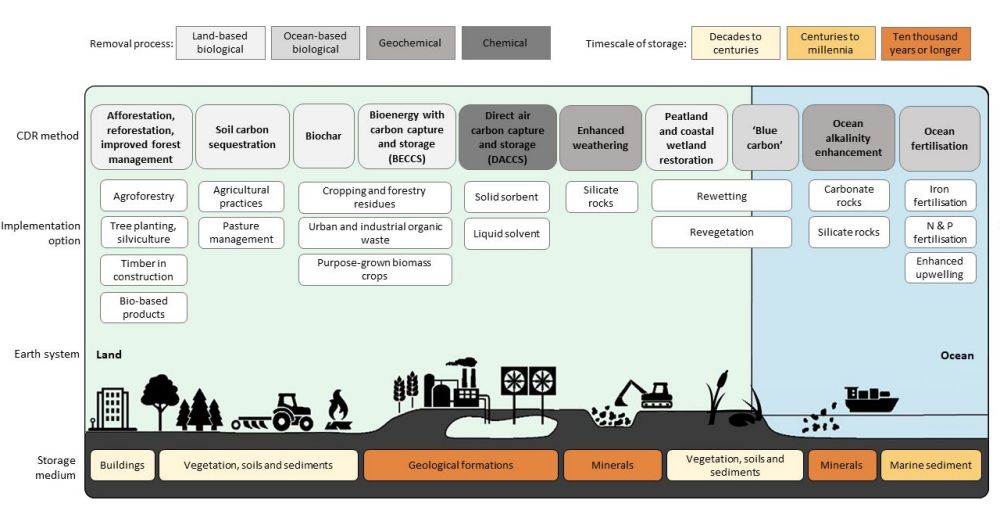October 3, 2023 | Communications Earth & Environment |
Introduction: The Carbon Dioxide Removal (CDR) policy is crucial for achieving long-term climate goals, and the credibility of certification schemes is vital for its success. CDR involves activities that remove carbon dioxide from the atmosphere and store it durably in geological, terrestrial, or ocean reservoirs, or in products. Researcher from several German research institutes, such as Institute for International and Security Affairs, collaborted with International Institute for Applied Systems Analysis in Australia to comment on the current progress of The European Union (EU) in establishing a Carbon Removal Certification Framework (CRC-F).
Key findings: Carbon removal actions or emission reduction activities vary in effective durations, CRC-F and associated carbon trading must distinguish between more permanent sequestration and temporary emission reductions to ensure efficacy in achieving policy goals. A strong certification framework within the EU is likely to serve as a best practice example to other national and multilateral processes in legislative making. The balance between streamlined regulation to foster innovation and a strong framework for private sectors to particate in climate actions is crucial for the success of EU CDR.
Read more: Secure robust carbon dioxide removal policy through credible certification

Fig. | Taxonomy for carbon removal / SOURCE: IPCC





